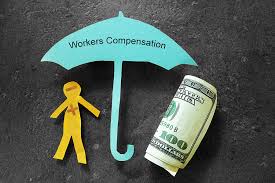
The workers’ compensation program in North Carolina covers vocational rehabilitation (VR), but injured workers must meet specific criteria before using this benefit. The goal of vocational rehabilitation is to help injured workers return to the workplace or retrain them for suitable employment once they can work.
The laws that govern North Carolina’s VR program can be found in G.S. § 97-32.2 and the Subchapter 23C of the Rules for Utilization of Rehabilitation Professionals. These documents outline eligibility for vocational rehabilitation, how the services work, and who can provide them, among other things.
What Is Vocational Rehabilitation?
Vocational rehabilitation aims to get injured employees and people with disabilities back to work. A range of services falls under this program’s umbrella, so your required individualized written rehabilitation plan may look different from someone else’s. Generally, these programs offer:
- A review of your education, skills, and work history to assess suitable job roles for you
- Career counseling
- On-the-job training or job retraining
- Job search training
- Job placement
- Job modifications or accommodations
Job Placement Can Start Only After You Complete Your Work Plan
Your return-to-work options start after you finish writing your individualized rehabilitation program. You should review this plan thoroughly to ensure it meets your needs. Per the law, priority is given to returning the worker to their current employer. After that, the order of priority is:
- Returning the worker to suitable employment with a new employer
- Returning the worker to their current or new employer after receiving education or vocational training
How Vocational Rehabilitation Helps Injured Workers Prepare to Return to Work
You can request vocational rehabilitation services at any phase of your workers’ compensation claim. According to the law, you don’t need to reach maximum medical improvement (MMI) to receive this benefit. You also can request services if you:
- Have not returned to your job since your workplace accident
- Have returned to work but are earning less than 75% of your average weekly wages
Vocational rehabilitation services include education and retraining you may need. For example, you can attend a community college or university in North Carolina if the training is likely to increase your ability to earn wages after finishing your studies or the retraining program. In addition, you can seek job placement services after you finish your individualized written rehabilitation plan.
Personal Injury Lawyer Near Me 828.286.3866
Other Things to Know About Vocational Rehabilitation Services
Your employer can make the first selection of the vocational rehabilitation professional who will conduct services for you. It will then pay for you to receive the professional’s services as it does with other workers’ compensation benefits.
This professional must meet the North Carolina Industrial Commission‘s qualifications and have its approval to perform services. The law allows you or your employer at any time to ask for a change of the professional “for a good cause.”
Can You Refuse Vocational Rehabilitation?
While worker’s compensation in North Carolina covers vocational rehabilitation, some claimants may consider passing up the opportunity. Of course, that is their option, but it comes at a price.
Per G.S. § 97-32.2(g), if the Industrial Commission orders vocational rehabilitation services, it will bar any worker from receiving wage replacement payments until they accept or cooperate with vocational rehabilitation services. They also will not be paid for the time they did not participate in the program.
We Will Advise You During the Vocational Rehabilitation Process
If you have questions about the vocational rehabilitation benefit under North Carolina’s workers’ compensation program, you can reach out to us anytime for legal guidance. We will protect your rights and interests as you go through the process.
We also will be present with you at all meetings regarding your rehabilitation program and advise you on various matters related to your return to work.
We Help Clients with All Workers’ Compensation Claims
Workers’ compensation cases commonly hit all kinds of snags. We help clients appeal a denied claim and keep their cases on track. Many cases begin while clients continue to heal from injuries suffered on the job, so handling a claim for workers’ compensation benefits only adds to their stress. We take care of their legal matters while they focus on their recovery.
We want to do the same for you. As the North Carolina Department of Insurance (NCDOI) explains, workers’ compensation is a form of no-fault insurance that employers in the state provide for their employees. When employers offer this coverage, employees generally cannot sue their employer for workplace injuries while performing job-related duties.
An Employer May Reject Your Claim
While the state’s workers’ compensation act covers medical bills and other benefits, getting a claim approved is not always smooth sailing. Sometimes, employers deny claims for assorted reasons. For example, they can argue that a worker caused their injury, or they did not report the job-site incident promptly after it happened.
We will look at the facts of your situation, determine what happened, and develop a strategy that could help you get your benefits. We will also review your paperwork so that errors don’t derail your claim.


Call Farmer & Morris Law, PLLC, for a Free Consultation Today
Getting hurt on the job does not necessarily mean you’ll never work again. You may recover from your injuries enough to earn an income. In addition, if you need to restart your career because of an injury, worker’s compensation in North Carolina covers vocational rehabilitation to prepare you for your return to the workplace.
A workers’ compensation attorney with Farmer & Morris Law, PLLC, can help you navigate your vocational rehabilitation benefit under workers’ compensation to ensure you get the help you need. Give us a call today at (828) 286-3866 to start your claim review during a free consultation.












